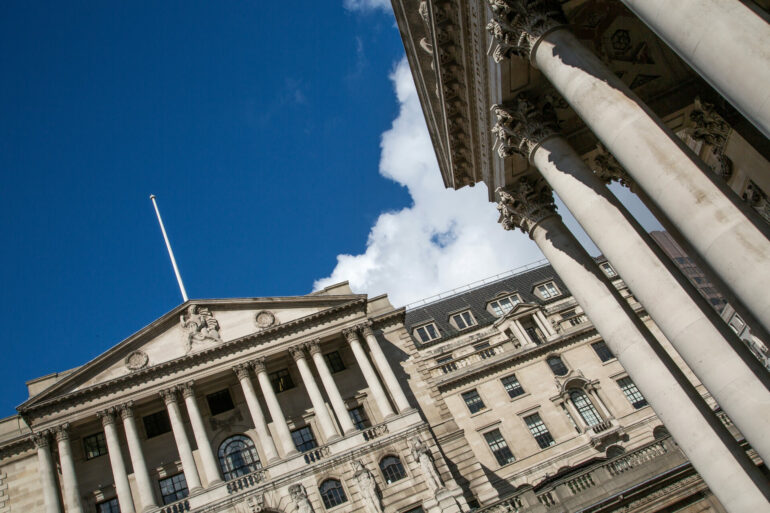The Institute of Economic Affairs’ Shadow Monetary Policy Committee (SMPC) has called for a halt to further interest rate rises, warning that an additional increase could harm the UK’s fragile economy. This urgent appeal comes as the Bank of England is expected to raise the Bank Rate from 5% to 5.25% today, Thursday, 3rd August.
In a strong vote of 8-1, the SMPC chose to maintain the Bank Rate at 5%, with one member advocating for an increase to 5.5%. The majority also voted to suspend or reduce the pace of Quantitative Tightening (QT), a marked shift from the committee’s May meeting, when only two members voted to suspend QT entirely.
The lone dissenting member argued that a further 0.5% basis point hike was necessary to prevent inflation from becoming entrenched in the economy. However, the majority saw that risk as low, citing weak growth, a weakening labour market, and easing supply-side pressures.
Economist Patrick Minford of Cardiff Business School warned that overreacting and over-tightening could cause economic damage and even spark a financial crisis. Juan Castañeda of the University of Buckingham highlighted recent contraction in the money supply, which will likely exert strong disinflationary pressure.
The SMPC, one of the first groups to call for higher interest rates in July 2021 due to loose monetary policy during the pandemic, now urges a pause on further monetary tightening. They stressed that the full impact of recent rate rises and QT must be clear before proceeding. The committee members, however, also cautioned against an interest rate cut, suggesting that the Bank of England has lost too much credibility in tackling inflation to reverse course.
The group noted a decrease in lending to companies and financial institutions and expressed concern over the risk of a “payment shock” as 1.6 million fixed-rate mortgage deals are set to conclude by mid-2024. They also acknowledged that headline inflation rates are already starting to fall across developed economies.
Trevor Williams, chair of the SMPC and former chief economist at Lloyds Bank, emphasised the committee’s stance, stating: “It will take some time for previous rate rises and falling global commodity prices to feed into lower inflation. But, in the meantime, further rate rises by the Bank of England are unnecessary and could do some economic damage without lowering inflation any faster.”
Williams also warned of the UK economy being “on the precipice of a sharper slowdown,” citing factors like contraction in the money supply, reduced liquidity available for loans, lower house price inflation, and slowing economic activity.



